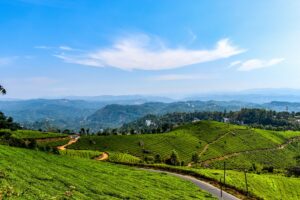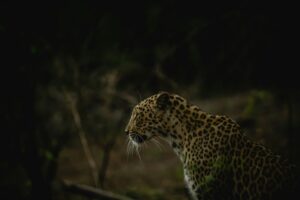Zanzibar, the enchanting island off the coast of Tanzania, is a dream destination not only for beach lovers but also for diving enthusiasts. Surrounded by the warm, crystal-clear waters of the Indian Ocean, Zanzibar offers some of the most spectacular scuba diving experiences in East Africa. Whether you’re a beginner looking to explore coral reefs for the first time or a certified diver seeking thrilling underwater adventures, scuba diving in Zanzibar is a journey into a vibrant and surreal world.
In this article, we’ll explore everything you need to know about diving in Zanzibar—from the best dive sites and marine life to tips, seasons, safety, and more.
Why Choose Zanzibar for Scuba Diving?
Zanzibar boasts a unique combination of tropical waters, diverse marine ecosystems, and accessible reefs. The region is part of the larger Zanzibar Archipelago, which includes Pemba and Mafia Islands, both known for offering incredible diving as well.
Here’s what makes Zanzibar exceptional for scuba diving:
-
Warm Water Year-Round: Temperatures range from 25°C to 29°C, making it perfect for diving without a wetsuit.
-
Visibility: Underwater visibility often extends up to 30 meters.
-
Marine Biodiversity: From colorful reef fish and turtles to dolphins and reef sharks, the biodiversity is unmatched.
-
Affordable Diving: Compared to destinations like the Maldives or Seychelles, Zanzibar offers more budget-friendly diving packages.
Top Dive Sites in Zanzibar
Here are some of the most recommended dive spots around the island:
1. Mnemba Atoll (North-East Coast)
Mnemba Atoll is the most popular and well-preserved diving area in Zanzibar. It’s surrounded by coral reefs that are home to green turtles, moray eels, trumpetfish, and sometimes dolphins. Visibility is excellent, and the reef system is ideal for both novice and experienced divers.
-
Depth: 10–30 meters
-
Best for: Coral gardens, turtles, and reef fish
2. Leven Bank (North Zanzibar)
Leven Bank is a deep-sea site suited for advanced divers. It’s located offshore and offers strong currents, making it the best spot for pelagic sightings such as barracudas, kingfish, and sometimes reef sharks.
-
Depth: 18–40 meters
-
Best for: Big fish, drift diving, and advanced divers
3. Kizimkazi (South Zanzibar)
Kizimkazi is known for its dolphin population and rocky reef formations. It’s a great site for drift dives, and depending on the season, you might even spot humpback whales in the deeper waters offshore.
-
Depth: 10–25 meters
-
Best for: Dolphins, soft corals, and seasonal whale sightings
4. Pemba Island (North of Zanzibar)
Though not on Unguja (main Zanzibar island), Pemba is part of the archipelago and is renowned for untouched dive sites, dramatic wall dives, and incredible biodiversity.
-
Depth: 15–40 meters
-
Best for: Wall diving, macro life, and pristine corals
5. Bawe Island (West Coast Zanzibar)
Closer to Stone Town, Bawe is perfect for beginners and those looking for quick access from the main town. It features coral gardens, an old wreck, and gentle conditions.
-
Depth: 6–18 meters
-
Best for: Beginners, wreck exploration, and short trips
What Marine Life Will You See?
Scuba diving in Zanzibar offers a kaleidoscope of marine life. The reefs are alive with hard and soft corals and teeming with tropical species. Here are some creatures you’re likely to encounter:
-
Clownfish and angelfish
-
Moray eels and trumpetfish
-
Sea turtles (green and hawksbill)
-
Octopuses and cuttlefish
-
Lionfish, scorpionfish, and leaf fish
-
Reef sharks, rays, and even dolphins
If you visit during the right season, there’s also a chance to see humpback whales, whale sharks, and manta rays.
Best Time to Dive in Zanzibar
While diving is possible year-round in Zanzibar, the best visibility and calmest waters are found during specific months:
-
Best Seasons:
-
June to October (dry season, cooler water)
-
December to March (warmest water, best visibility)
-
-
Avoid:
-
Mid-April to May (long rains)
-
November (short rains, can reduce visibility)
-
Scuba Diving Certifications and Courses
If you’re new to diving, Zanzibar is an excellent place to get certified. Most dive centers on the island offer PADI and SSI certification courses including:
-
Discover Scuba Diving (DSD)
-
Open Water Diver
-
Advanced Open Water Diver
-
Specialty Courses (Underwater Photography, Deep Diver, etc.)
Courses are conducted in small groups with highly qualified instructors, and many schools operate in multiple languages.
Top Dive Centers in Zanzibar
Here are some reputed and reliable dive centers:
-
One Ocean Dive Center – Based in Stone Town and Matemwe
-
Scubafish Zanzibar – Located near Mnemba Atoll
-
Dive Point Zanzibar – Offers high-quality gear and multilingual staff
-
Zanzibar Dive Centre – Spanish Dancer Divers – One of the longest-running schools in Nungwi
-
Buccaneer Diving – Known for their eco-friendly practices
Tips for Scuba Diving in Zanzibar
-
Book in Advance: Especially during high seasons, dive slots fill up quickly.
-
Hydrate Well: Zanzibar is hot and humid—stay hydrated before and after your dive.
-
Respect Marine Life: Don’t touch coral or chase marine animals.
-
Bring Reef-Safe Sunscreen: Help protect the fragile underwater ecosystem.
-
Check Equipment: Always inspect gear before going on a dive, or bring your own if you prefer.
Safety and Health Considerations
Zanzibar is generally safe for diving, but here are a few things to keep in mind:
-
No Decompression Diving: Always follow no-deco limits.
-
Travel Insurance: Make sure it includes dive-related coverage.
-
Wait Before Flying: Avoid flying for at least 18–24 hours after your last dive.
-
Medical Conditions: If you have asthma, heart conditions, or other health concerns, consult a dive doctor.
Costs of Scuba Diving in Zanzibar
Diving in Zanzibar is relatively affordable:
-
Discover Scuba Dive: $70–$100
-
2-Tank Fun Dive: $90–$130
-
Open Water Certification: $350–$450
-
Equipment Rental: Usually included, or $10–$20 extra
Final Thoughts
Scuba diving in Zanzibar offers an unforgettable opportunity to explore some of the most unspoiled and breathtaking underwater environments in the Indian Ocean. With its colorful coral gardens, exotic marine life, and warm welcoming dive centers, the island is a top destination for divers of all skill levels. Whether you’re floating alongside a turtle in Mnemba or marveling at a wall of coral in Pemba, diving in Zanzibar is an experience that will stay with you forever.



